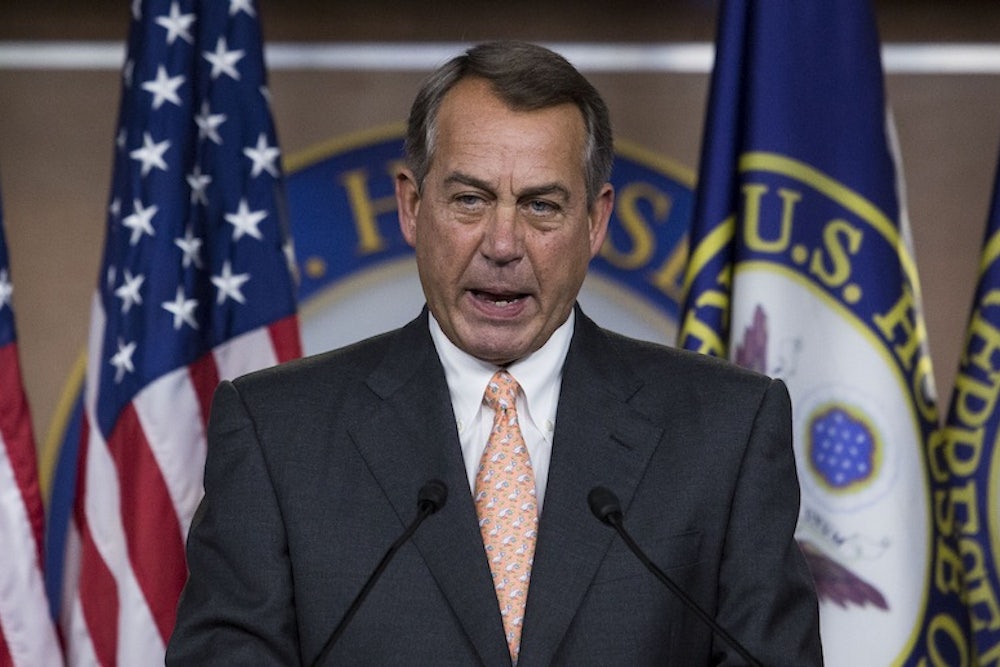Republicans are furious that President Barack Obama has cut a historic deal with China to lower both countries’ greenhouse gas emissions. Senate Minority Leader Mitch McConnell just spent his reelection campaign claiming that China would never curb its emissions, so the U.S. shouldn’t either. Many other Republicans have argued the same. And yet China just proved Republicans wrong by committing to reach a peak level of carbon pollution by 2030—the first time the world’s largest polluter has set a deadline for lowering emissions.
Republicans won’t admit they were wrong, of course. They've already moved on to their next talking point. Remarkably, the party that’s become synonymous with climate-change denial has avoided any mention of it this time. A statement from McConnell's office stressed only that Environmental Protection Agency regulations hurt coal jobs:
Our economy can't take the President's ideological War on Coal that will increase the squeeze on middle-class families and struggling miners. This unrealistic plan, that the President would dump on his successor, would ensure higher utility rates and far fewer jobs. Easing the burden already created by EPA regulations will continue to be a priority for me in the new Congress.
House Speaker John Boehner stated:
This announcement is yet another sign that the president intends to double down on his job-crushing policies no matter how devastating the impact for America’s heartland and the country as a whole. And it is the latest example of the president’s crusade against affordable, reliable energy that is already hurting jobs and squeezing middle-class families. Republicans have consistently passed legislation to rein in the EPA and stop these harmful policies from taking effect, and we will continue to make this a priority in the new Congress.
Even Senator James Inhofe—Congress’ most vigilant climate-change denier—neglected to mention what he really thinks of global warming. He emphasized that this deal lets China get away with not making any real cuts, while the U.S. will have to cut up to 28 percent of its emissions by 2025:
In the President's climate change deal, the United States will be required to more steeply reduce our carbon emissions while China won't have to reduce anything. It's hollow and not believable for China to claim it will shift 20 percent of its energy to non-fossil fuels by 2030, and a promise to peak its carbon emissions only allows the world's largest economy to buy time. China builds a coal-fired power plant every 10 days, is the largest importer of coal in the world, and has no known reserves of natural gas. This deal is a non-binding charade. The American people spoke against the President's climate policies in this last election. They want affordable energy and more economic opportunity, both which are being diminished by overbearing EPA mandates. As we enter a new Congress, I will do everything in my power to rein in and shed light on the EPA's unchecked regulations.
That's not true. This climate accord marks the first time that China has publicly committed to any limit on carbon, at all. As a developing and rapidly growing economy that bears little responsibility historically for climate change, China can rightly argue it won’t act unless the U.S. does. To discredit this deal as a “non-binding charade” is simply misleading; these commitments may be formalized next year at an international meeting in Paris. The announcement now is meant to build momentum for these talks, and convince other countries to put forward their own ambitious targets.
The hardest part—how to move both countries' giant economies away from fossil fuel dependence—comes next. Republican opposition will be firm, even if their excuses shift away from climate-change denial.
